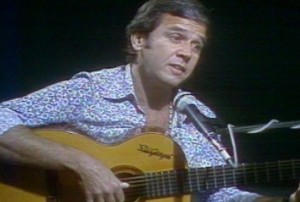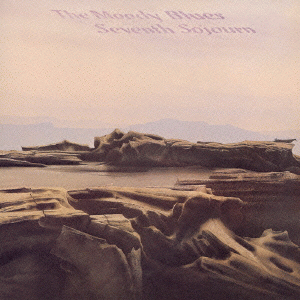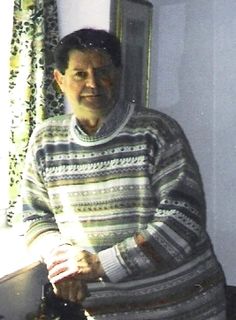William Jennings Bryan "Ben" Weber was an American composer.

Carlos Eduardo Lyra Barbosa is a Brazilian singer and composer of numerous bossa nova and Música popular brasileira classics. He and Antonio Carlos Jobim, were the first two music composers, together with lyricists Vinicius de Moraes and Ronaldo Boscoli, to be recorded by João Gilberto on his first LP entitled Chega de Saudade (1959), which was called the first generation of Bossa Nova.
A quintet is a group containing five members. It is commonly associated with musical groups, such as a string quintet, or a group of five singers, but can be applied to any situation where five similar or related objects are considered a single unit.
Ned Rorem is an American composer and diarist. He won a Pulitzer Prize for Music in 1976 for his Air Music: Ten Etudes for Orchestra.

Prabodh Chandra Dey, known by his stage name Manna Dey, was an Indian playback singer, music director, and a musician. As a classical vocalist, he belonged to the Bhendibazaar Gharana and was trained under Ustad Aman Ali Khan. He is considered one of the most versatile and celebrated vocalists of the Hindi film industry, often credited with the success of Indian classical music in Hindi commercial movies. As a musician, Dey is best known for infusing Indian classical music in a pop framework that ushered the golden period in Hindi cinema.
Ruth Dorothy Louisa ("Wid") Gipps was an English composer, oboist, pianist, conductor, and educator. She was one of the most prolific composers in Britain at the time of her death, having written five symphonies, seven concertos, and numerous chamber and choral works. She founded both the London Repertoire Orchestra and the Chanticleer Orchestra and served as conductor and music director for the City of Birmingham Choir. Later in her life she served as chairwoman of the Composers' Guild of Great Britain.

Seventh Sojourn is the eighth album by the Moody Blues, released in 1972.

"Nights in White Satin" is a song by the Moody Blues, written and composed by Justin Hayward. It was first featured as the segment "The Night" on the album Days of Future Passed. When first released as a single in 1967, it reached number 19 on the UK Singles Chart and number 103 in the United States in 1968. It was the first significant chart entry by the band since "Go Now" and its recent lineup change, in which Denny Laine and Clint Warwick had resigned and both Hayward and John Lodge had joined.

The Five Satins are an American doo-wop group, best known for their 1956 million-selling song, "In the Still of the Night." They were formed in 1954 and continued performing until 1994. When it was formed, the group consisted of six members, which was eventually cut down to five. The group is in the Vocal Group Hall of Fame.

Sergei Prokofiev's Symphony No. 7 in C-sharp minor, Op. 131, was completed in 1952, the year before his death. It is his last symphony.
"It's Easy to Remember " is a popular song written by Richard Rodgers with lyrics by Lorenz Hart, published in 1935, written for the 1935 film Mississippi starring Bing Crosby and W.C. Fields. Crosby introduced the song in the film and his recording for Decca Records made on February 21, 1935 with Georgie Stoll and his Orchestra and Rhythmettes and Three Shades of Blue topped the charts of the day. Crosby recorded the song again in 1954 for his album Bing: A Musical Autobiography.
Charles Camilleri was a Maltese composer.
Maia Sharp is an American singer and songwriter. In addition to her solo career, she has written songs for and collaborated with several country and pop musicians including Cher, Trisha Yearwood, Terri Clark, Bonnie Raitt, Edwin McCain, and Art Garfunkel.

Michael John Hurd was a composer, teacher and author, principally known for his dramatic cantatas for schools and for his choral music.
"I Get Along Without You Very Well" is a popular song composed by Hoagy Carmichael in 1939, with lyrics based on a poem written by Jane Brown Thompson, and the main melodic theme on the Fantaisie-Impromptu in C sharp minor, Op 66, by Frédéric Chopin. Thompson's identity as the author of the poem was for many years unknown; she died the night before the song was introduced on radio by Dick Powell.

Charlie Parker with Strings is the name of two separate albums by jazz musician Charlie Parker, released in 1950 on Mercury Records. It is also the name of a 1995 compilation album released by Verve Records, containing all the tracks from both the 1950 albums, as well as additional material. The sessions place Parker in the context of a small classical string section and a jazz rhythm section, rather than his standard bebop quintet. They were Parker's most popular sellers during his lifetime, and were admitted to the Grammy Hall of Fame in 1988.

Die Nacht der Seele is the twelfth album by Popol Vuh. It was originally released in 1979 on Brain Records. In 2005 SPV re-released the album with four bonus tracks. "Engel der Luft" and "Im Reich der Schatten" were used in 1982 for the soundtrack of Werner Herzog's film Fitzcarraldo.
Peter Charles Arthur Wishart was an English composer. Wishart was born in Crowborough. He studied with Nadia Boulanger in Paris from 1947–1948 and taught at the Guildhall School of Music, Birmingham University, King's College London and Reading University where he was Professor of Music from 1977. His compositions include several neo-classical operas, orchestral and chamber pieces, and a large amount of church music. Critics have commented on Wishart's strong and individual lyricism, and his admiration for the music of Igor Stravinsky.
"When the Swallows Come Back to Capistrano" is a song written by Leon René and first recorded by The Ink Spots featuring Bill Kenny in May 1940. The Ink Spots' recording of the song reached No. 4 on the US charts.

Sparkle is a 2012 American musical film directed by Salim Akil and produced by Stage 6 Films, It was released on August 17, 2012, by TriStar Pictures. Inspired by The Supremes, Sparkle is a remake of the 1976 film of the same title, which centered on three singing teenage sisters from Harlem who form a girl group in the late 1950s. The remake takes place in Detroit, Michigan in 1968 during the Motown era.










